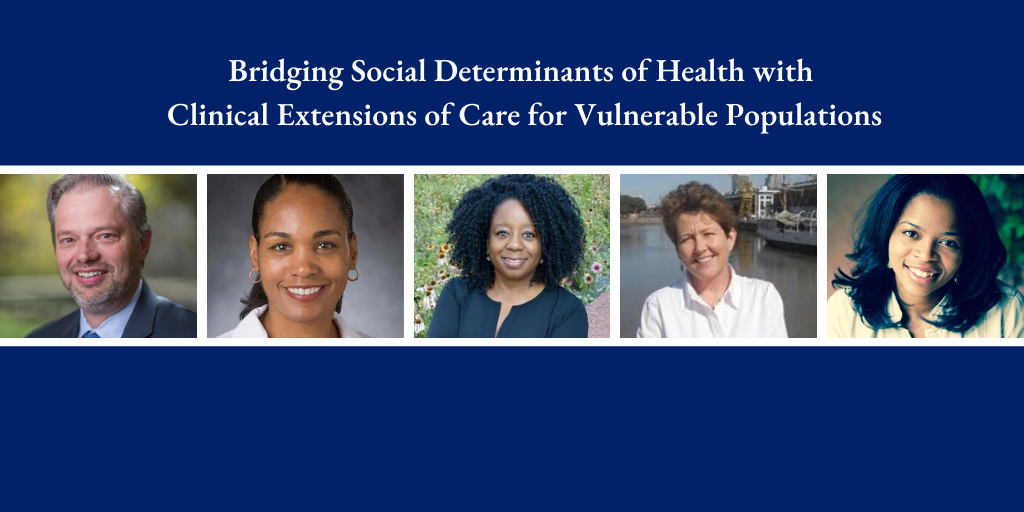
Ten Groups of Faculty Receive Intellectual Community Planning Grants for 2020
The Provost’s Office has awarded Intellectual Community Planning Grants to ten groups for the 2020 calendar year.
A key goal of Together Duke is to invest in faculty as scholars and leaders of the university’s intellectual communities. To foster collaboration around new and emerging areas of interest, Intellectual Community Planning Grants (ICPG) ranging from $1,000 to $5,000 are available to groups of faculty. Recipients can use the funds to support the exploration of new collaborations, covering the cost of meeting venues, food, external speakers or other meeting costs, and research to identify potential collaborators at Duke and elsewhere.
The 2020 grants include faculty from all of Duke’s schools as well as the University of North Carolina, NC State University, and NC Central University.
Bridging Social Determinants of Health with Clinical Extensions of Care for Vulnerable Populations

This group will establish a partnership between Duke’s Clinical Translational Science Institute and the Social Science Research Institute in order to develop a portfolio of scholarly activity that tackles the interplay of social determinants of health, clinical health outcomes, and the advancement of health equity. Members will develop a compilation of resources to facilitate interdisciplinary and collaborative research and take advantage of short-term synergies that allow for additional coauthored publications. They will also develop research proposals to design and test one or more interventions.
- Lead: Donald H. Taylor, Sanford School of Public Policy; Social Science Research Institute
- Ebony Boulware, School of Medicine
- Nadine Barrett, School of Medicine
- Robin Kirk, Cultural Anthropology, Trinity College of Arts & Sciences
- Carolyn Barnes, Sanford School of Public Policy
Developing a Neuroethics and Theological Studies Network
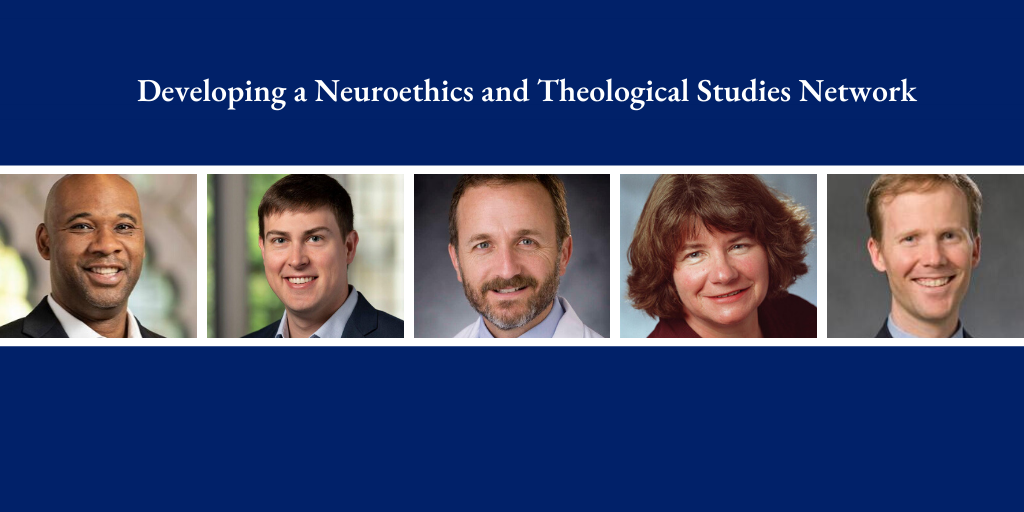
What can theological studies contribute to neuroethics, and vice versa? How can the engagement of theological studies with neuroethics best be facilitated? How can further interdisciplinary collaboration at Duke shape such dialogue? This group seeks to foster and expand the work of an emerging international cohort of scholars working at the intersection of theological studies and neuroethics.
- Co-lead: Patrick Smith, Divinity School
- Co-lead: Brett McCarty, Divinity School; School of Medicine
- Farr Curlin, Divinity School; School of Medicine
- Susan Eastman, Divinity School
- Warren Kinghorn, Divinity School; School of Medicine
Duke SciReg Center: Science in Regulation, Law, and Public Policy
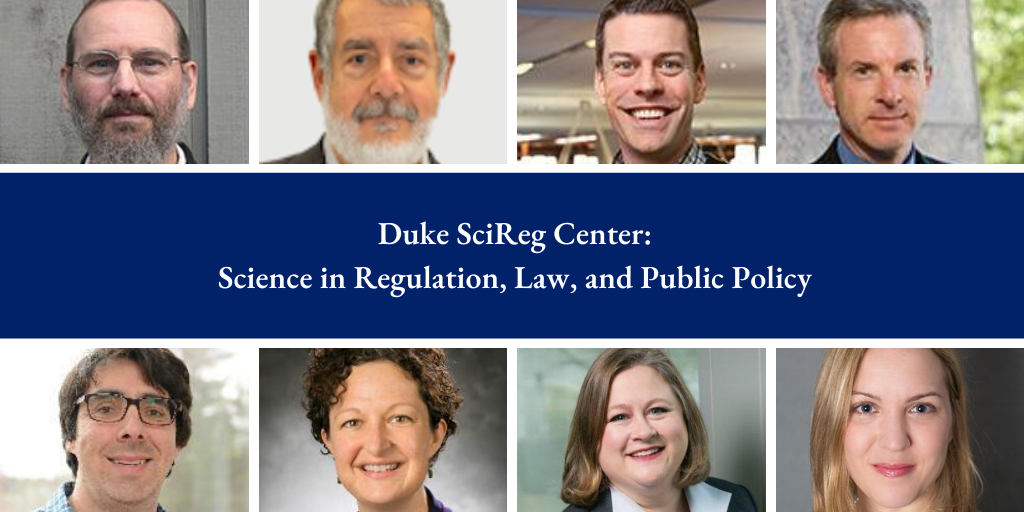
Bringing together Duke faculty and students from STEM disciplines, law, and policy, this group will seek to facilitate the provision of timely comments from Duke experts to state and federal agencies on pending regulations that implicate scientific and technical issues. Following a series of conversations and planning events, members hope to establish a center at Duke that would create a unique model for interdisciplinary education in science, law, and policy through actual participation in the regulatory process.
- Lead: Pate Skene, School of Medicine
- Michael B. Waitzkin, Initiative for Science & Society
- Jeff Ward, School of Law
- Jonathan Wiener, School of Law; Nicholas School of the Environment; Sanford School of Public Policy
- Mark Borsuk, Pratt School of Engineering
- Kate Konschnik, Nicholas Institute for Environmental Policy Solutions
- Lori Bennear, Nicholas School of the Environment
- Sarah Rispin Sedlak, Initiative for Science & Society
Entity Resolution with Applications to Public Policy and Business
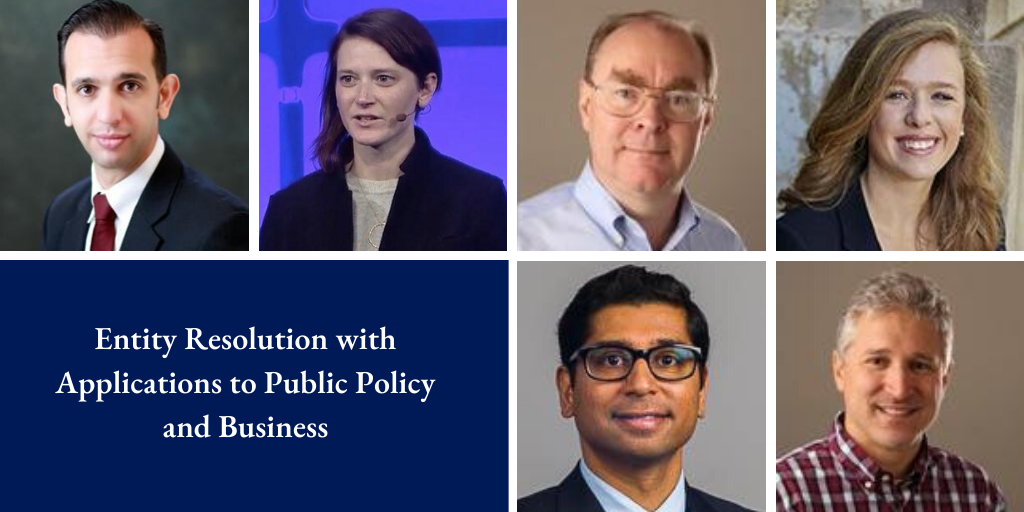
This collaboration will enable the formation of a multidisciplinary lab of social scientists, public policy analysts, business scholars, mathematicians and statisticians who seek to understand the practical issues related to entity resolution (ER)—the processes of removing duplicates from large databases and engaging in accurate record linkage across databases. There will be regular meetings of the member research groups to explore applications of ER tasks in public policy and business; one Ph.D. student will work on a project to implement members’ developed tools into software for public distribution and a working paper.
- Co-lead: Victor Bennett, Fuqua School of Business
- Co-lead: Rebecca Steorts, Statistical Science, Trinity College of Arts & Sciences
- David Banks, Statistical Science, Trinity College of Arts & Sciences
- Ines Black, Fuqua School of Business
- Sharique Hasan, Fuqua School of Business
- Jerry Reiter, Statistical Science, Trinity College of Arts & Sciences
Housing and Health: A Multisector Community-driven Approach to Achieving Health Equity
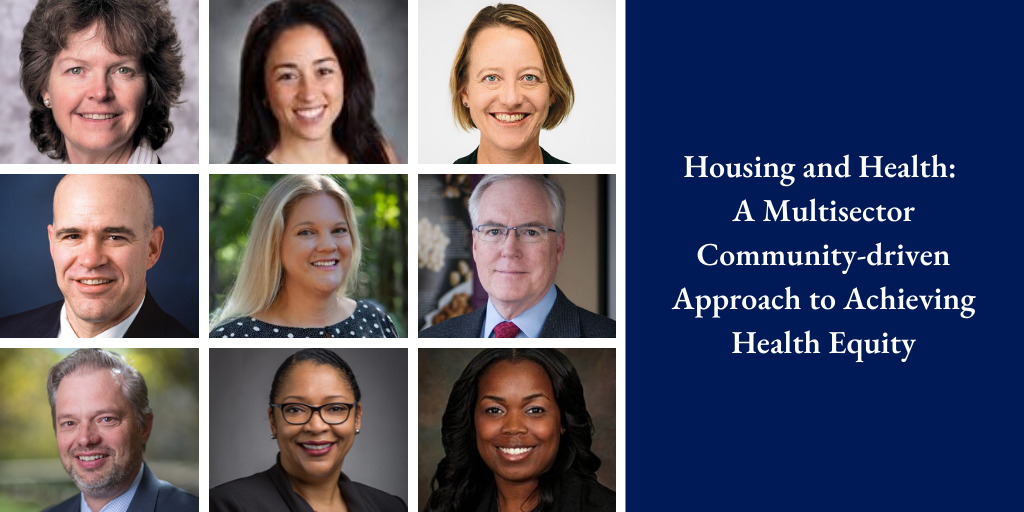
Combining a community engagement process with interdisciplinary expertise, these faculty hope to address social, economic, and environmental influencers of health, with the eventual goal of transforming Durham into a healthier place for its most vulnerable residents. Members will participate in an interactive, facilitated pre-planning meeting and four design-thinking workshops with community partners, followed by a post-workshop debrief and a meeting to determine next steps and future directions.
- Lead: Donna J. Biederman, School of Nursing
- Rosa Gonzalez-Guarda, School of Nursing
- Elizabeth Shapiro-Garza, Nicholas School of the Environment
- Daniel Richter, Nicholas School of the Environment
- Jennifer (Kate) Hoffman, Nicholas School of the Environment
- Don Bradley, School of Medicine; Margolis Center for Health Policy
- Donald H. Taylor, Sanford School of Public Policy; Social Science Research Institute
- Lorraine C. Taylor, North Carolina Central University
- Ashanti Brown, Durham Housing Authority
Human Rights Futures
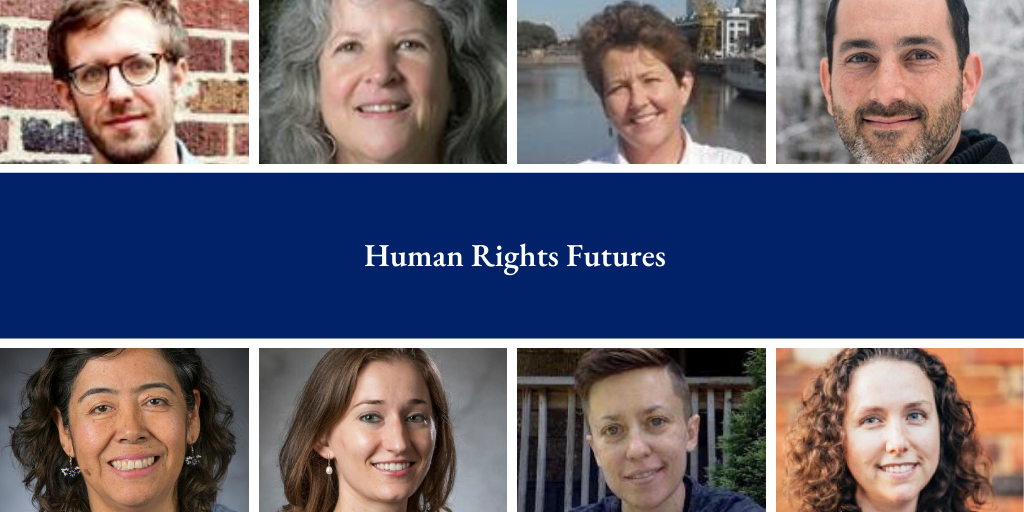
This community of human rights scholars plans will discuss a new temporal framing for human rights: one that remains aware of past grievances and the need for reparations, but that places such awareness in the service of a sustainable and desirable future. Involving graduate and undergraduate students, the group will explore a number of ideas for how this multiyear project might come to life. Following several working lunches, the group plans to launch a “speculative fiction book club,” host a guest speaker, and convene a day-long workshop.
- Lead: James Chappel, History, Trinity College of Arts & Sciences
- Kathi Weeks, Gender, Sexuality, & Feminist Studies, Trinity College of Arts & Sciences
- Robin Kirk, Cultural Anthropology, Trinity College of Arts & Sciences
- Adam Rosenblatt, International Comparative Studies, Trinity College of Arts & Sciences
- Liliana Paredes, Romance Studies, Trinity College of Arts & Sciences
- Marion Quirici, Thompson Writing Program, Trinity College of Arts & Sciences
- Jen Ansley, Thompson Writing Program, Trinity College of Arts & Sciences
- Emily Stewart, Duke Human Rights Center at the Franklin Humanities Institute
Light-based Methods in Neuroscience and Biology
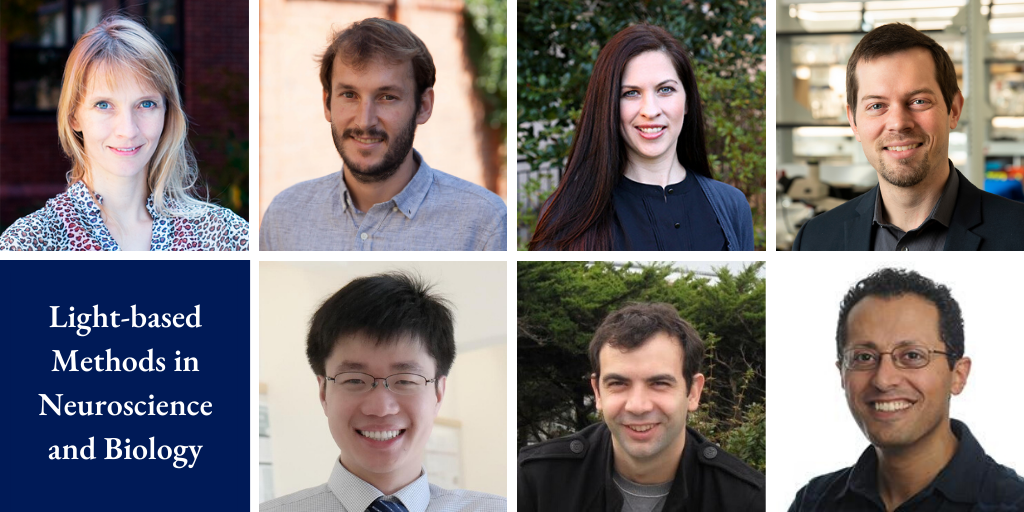
This group aims to cross-pollinate ideas among neuroscientists, engineers, and data scientists. Each meeting focus on related questions requiring interdisciplinary engagement (e.g., How can we use light-based methods, such as scanless holography, adaptive optics, computational optics approaches, and genetically encoded activity sensors and actuators such as bacterial opsins, to investigate neural function?) Members will share information about resources for addressing these questions and communicate across Duke to strengthen imaging infrastructure.
- Lead: Eva Naumann, School of Medicine
- Roarke Horstmeyer, Pratt School of Engineering
- Jenna McHenry, Psychology and Neuroscience, Trinity College of Arts & Sciences
- John Pearson, Pratt School of Engineering
- Junjie Yao, Pratt School of Engineering
- Stefano Di Talia, School of Medicine
- Mike Tadross, Pratt School of Engineering
North Carolina Saltwater Intrusion and Sea Level Rise
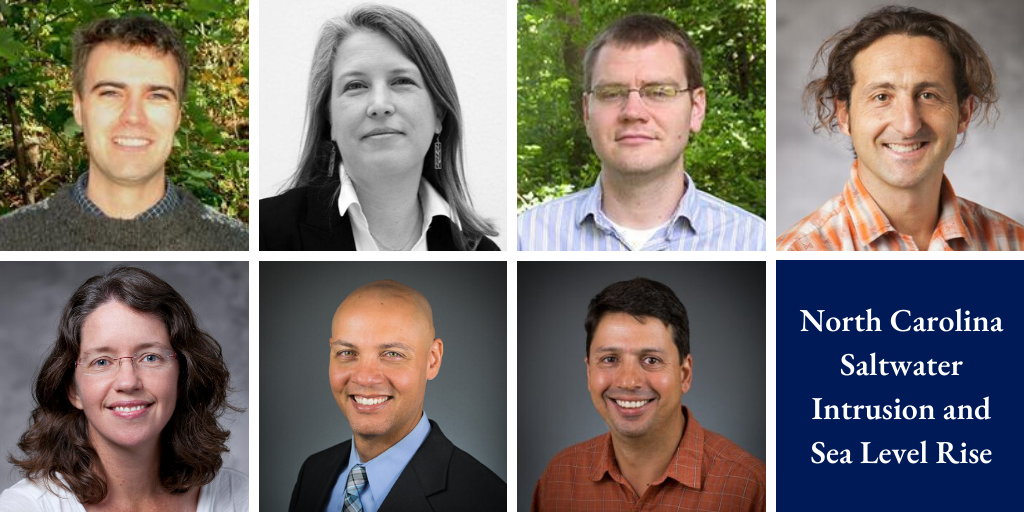
Predicting the impacts of sea level rise and the accompanying saltwater intrusion on freshwater coastal wetlands is a complex challenge. While the formation of “ghost forests”—the rapid death of trees due to salt stress—is gaining attention, our understanding remains fragmented. This group will convene a one-day workshop to develop an overarching research framework, with the goals of then pooling resources, sharing data, and submitting joint grant proposals.
- Lead: Justin Wright, Biology, Trinity College of Arts & Sciences
- Emily Bernhardt, Biology, Trinity College of Arts & Sciences
- Nathaniel Chaney, Pratt School of Engineering
- Jean-Christophe Domec, Nicholas School of the Environment
- Jennifer Swenson, Nicholas School of the Environment
- Ryan Emanuel, North Carolina State University
- Marcelo Ardon, North Carolina State University
Opioid Detection Technologies and Their Application to Addressing Various Aspects of the Opioid Crisis
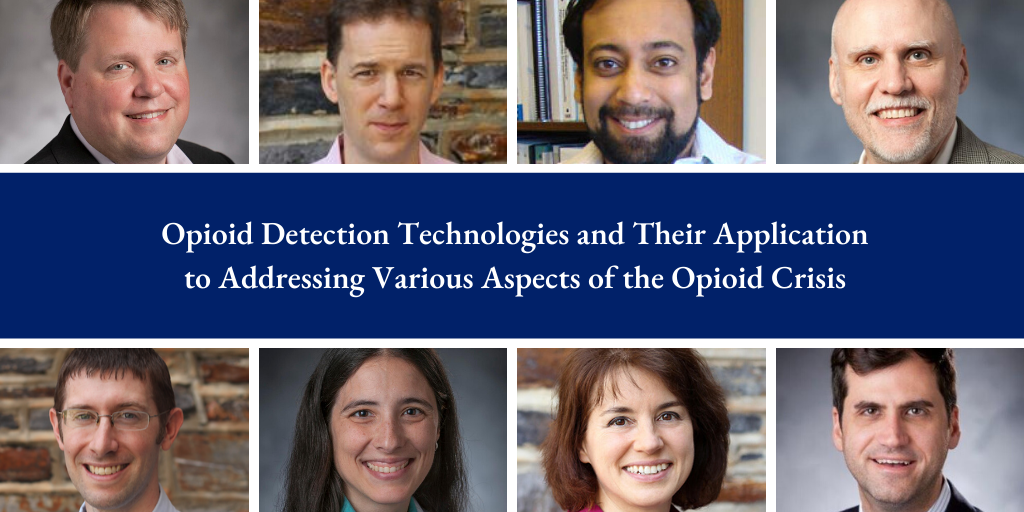
How can novel detection technologies be brought to bear on the opioid crisis? Members of this group will explore that question by undertaking two parallel activity streams: monthly collaboration meetings to share information; and acquisition of initial compound signatures on two fundamental detection technologies (X-ray diffraction and mass spectrometry). These faculty will pursue increased cross-disciplinary understanding of the opioid crisis and its detection needs; a baseline signature library of relevant compounds to support future analysis and design; and one or more joint proposals on topics related to detection and the opioid crisis.
- Lead: Michael Gehm, Pratt School of Engineering
- Jason Amsden, Pratt School of Engineering
- Nabarun Dasgupta, University of North Carolina
- Jeffrey Glass, Pratt School of Engineering
- Joel Greenberg, Pratt School of Engineering
- Rachel Greenberg, School of Medicine
- Sonia Grego, Pratt School of Engineering
- Andrew Muzyk, School of Medicine
Transformative Learning: A Shared Intellectual Interest across the University
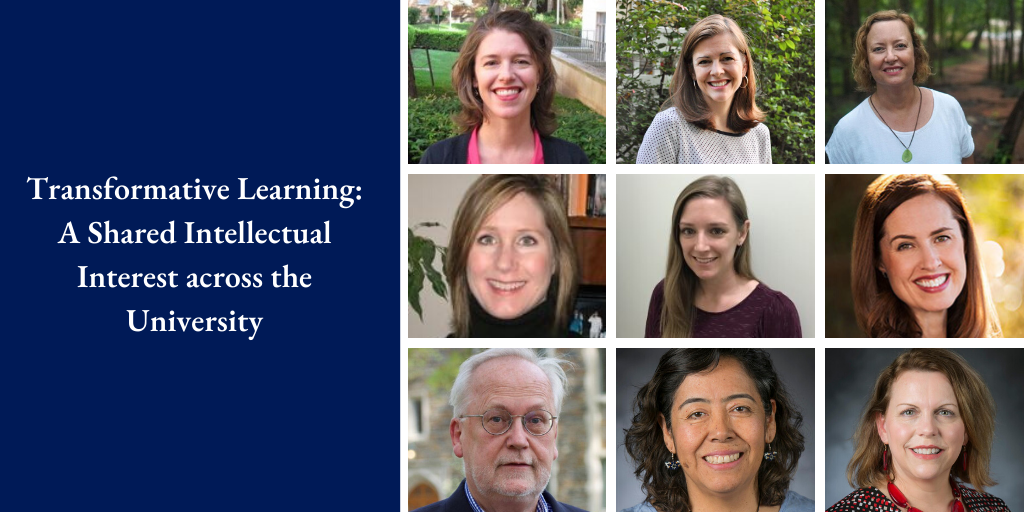
This group’s primary goal is to identify transformative learning moments among Duke students. Members will meet monthly to develop a shared knowledge of transformative learning practices and assessment. They will host a dinner with Dr. Stacey Johnson of Vanderbilt University, a renowned expert in transformative learning in language education, convene two campus-wide discussions, and invite a nationally recognized speaker to give a public talk. The group will create a shared toolkit of assessment tools for transformative learning and develop conference proposals and a publication to showcase this work.
- Co-lead: Cori Crane, Germanic Studies, Trinity College of Arts & Sciences
- Co-lead: Deb Reisinger, Romance Studies, Trinity College of Arts & Sciences
- Co-lead: Joan Clifford, Romance Studies, Trinity College of Arts & Sciences
- Jennifer Ahern-Dodson, Thompson Writing Program, Trinity College of Arts & Sciences
- Alessandra Dinin, Office of Assessment, Trinity College of Arts & Sciences
- Jennifer Hill, Office of Assessment, Trinity College of Arts & Sciences
- David Malone, Program in Education, Trinity College of Arts & Sciences
- Liliana Paredes, Romance Studies, Trinity College of Arts & Sciences
- Melissa Simmermeyer, Romance Studies, Trinity College of Arts & Sciences
Read about the 2019 recipients of Intellectual Community Planning Grants and view the 2018 summary report.
See all initiatives in the Together Duke academic strategic plan, including the current RFP for Collaboratories for Research on Immigration or on Science, Technology & Ethics (deadline: January 24, 2020; to learn more, attend an information session on Thursday, January 9, from 3:00 to 4:00 in the Karl E. Zener Auditorium, 130 Sociology-Psychology).